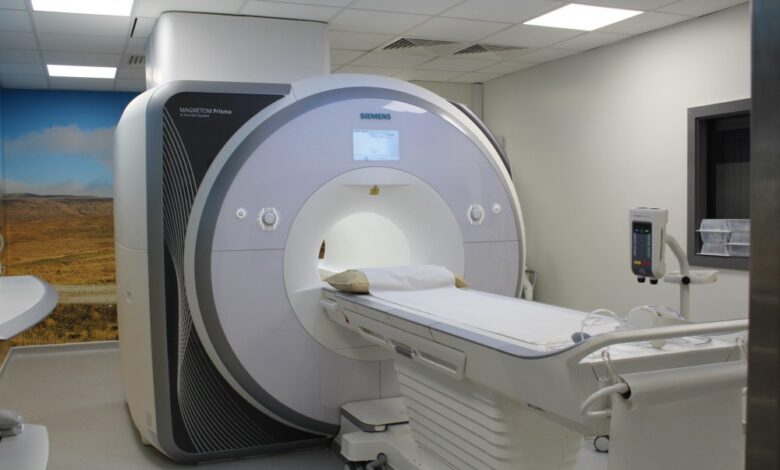MRI Scan in Singapore: An In-Depth Guide

MRI (Magnetic Resonance Imaging) scans have become an essential tool in modern healthcare, offering a non-invasive method to look inside the body and detect a variety of conditions. In Singapore, MRI scans are widely available in numerous healthcare facilities, ensuring residents and visitors have access to world-class diagnostic imaging. As one of the leading countries in the region for medical services, Singapore has invested in cutting-edge MRI technology, making it a hub for advanced medical care.
This article will explore what MRI scans are, their importance, the procedure, costs, and more, specifically in the context of healthcare in Singapore.
What is an MRI Scan?
MRI scans are diagnostic imaging tests that use strong magnetic fields and radio waves to generate detailed images of the internal structures of the body. Unlike X-rays or CT scans, MRI scans do not use ionizing radiation, making them a safer option for many patients. The process works by aligning hydrogen atoms in the body using a magnetic field and then disrupting them with radio waves.
MRI ScanThe response of these atoms is captured and transformed into high-resolution images. There are different types of MRI scans, including brain MRI, spine MRI, and joint MRIs, which are specialized to capture images of various parts of the body. The versatility and clarity of MRI scans make them invaluable in diagnosing a wide range of health conditions.
Why is MRI Important?
MRI scans are vital in diagnosing numerous medical conditions, particularly those affecting soft tissues, which may not be visible through other imaging methods like X-rays or CT scans. They are widely used to assess neurological disorders, joint and ligament injuries, cardiovascular problems, and even cancer. The detailed and high-resolution images produced by MRI scans enable doctors to identify abnormalities, monitor disease progression, and plan for surgeries or other treatments.
The non-invasive nature of the MRI procedure reduces the risks and discomfort typically associated with surgical diagnostic methods, making it a preferred choice for patients and healthcare professionals alike.
MRI Scan Procedure in Singapore
Undergoing an MRI scan in Singapore is a straightforward process that typically involves the following steps: Before the procedure, patients may need to remove clothing and any metal objects, such as jewelry or watches, as metal can interfere with the magnetic field. Depending on the area of the body being scanned, patients may be asked to lie on a table that slides into the MRI machine. The scan itself can take anywhere from 15 to 60 minutes, depending on the complexity of the images required.
During the procedure, patients must remain still to ensure high-quality images are captured. Some scans may require the use of a contrast agent to highlight specific areas. Afterward, patients can resume normal activities unless instructed otherwise by their doctor.
Types of MRI Scans in Singapore
In Singapore, healthcare providers offer a wide range of MRI scans tailored to various medical needs. A brain MRI is commonly used to detect neurological conditions like tumors, strokes, or multiple sclerosis. Spine MRIs help diagnose issues such as herniated discs, spinal stenosis, and other back problems. Joint and soft tissue MRIs are vital for detecting injuries or degenerative conditions affecting knees, shoulders, and other joints.
Additionally, specialized MRIs like cardiac MRIs are available for patients with heart conditions, while whole-body MRIs are sometimes performed for comprehensive screenings. With advanced imaging capabilities, Singapore’s hospitals and clinics are equipped to handle nearly every type of MRI requirement.
Cost of MRI Scan in Singapore
The cost of an MRI scan in Singapore can vary depending on several factors, including the type of scan, the facility you choose, and whether or not you need a contrast agent. On average, a standard MRI scan may cost between SGD 300 to SGD 1,500. For more specialized scans, such as brain MRIs with contrast, the price may be higher. The presence of additional services, such as detailed consultations with a radiologist or follow-up appointments, can further increase the cost.
Fortunately, health insurance in Singapore often covers a portion of these expenses, depending on the plan. Additionally, some government subsidies or financial assistance programs are available to reduce costs, especially for Singaporean citizens and permanent residents. It’s recommended to check with the healthcare provider or insurance company to understand the full cost and any possible reimbursements.
Choosing the Right MRI Clinic in Singapore
When choosing an MRI clinic in Singapore, it’s essential to consider several factors to ensure you receive the best care. First and foremost, look for clinics that are accredited by reputable medical bodies, such as the Singapore Medical Council or the Ministry of Health. This ensures that the clinic adheres to the highest standards of safety, quality, and professionalism. You should also consider the expertise of the radiologists and healthcare professionals, as well as the technology used in the MRI machines.
Many clinics in Singapore offer state-of-the-art MRI machines that produce high-resolution images and ensure patient comfort. Reading reviews or seeking recommendations from your doctor or peers can also help you find a reliable clinic. Lastly, consider the location, waiting times, and pricing to make an informed decision.
Advantages of Getting an MRI Scan in Singapore
There are several advantages to getting an MRI scan in Singapore. The country is renowned for its high-quality healthcare system, which includes access to advanced medical technology and skilled professionals. MRI scans in Singapore are performed using some of the most cutting-edge machines, ensuring precise and clear results. Furthermore, Singapore’s radiologists are highly trained and have extensive experience in interpreting MRI images, making accurate diagnoses easier.
Patients can also enjoy shorter waiting times and quick turnaround for results, thanks to the efficiency of the healthcare system. The nation’s healthcare infrastructure is top-notch, offering both private and public healthcare options to cater to different needs and budgets. Whether you need a routine check-up or a specialized scan, you can expect excellent care.
MRI Scan vs. Other Imaging Techniques
MRI scans offer several advantages over other imaging techniques, making them a preferred choice in many medical situations. Compared to X-rays, which primarily capture images of bones, MRIs excel at visualizing soft tissues like muscles, tendons, and organs. Unlike CT scans, which use radiation to create images, MRI scans rely on magnetic fields and radio waves, making them a safer option for patients who need frequent imaging.
Moreover, MRIs are especially useful for detecting conditions in the brain and spine, as they provide far more detailed images of these areas than CT scans or X-rays. Ultrasound imaging is another alternative, but it is typically more suited for examining organs like the heart or abdominal areas. MRI, on the other hand, is often preferred when a high level of detail is required, such as in cancer screening or neurological examinations.
MRI Safety Concerns
While MRI scans are generally considered safe, certain precautions are necessary to minimize risks. One of the primary safety concerns with MRI is the presence of metal in the body. Pacemakers, implants, and other metallic devices can interact with the magnetic field, potentially causing harm or disrupting the function of these devices. Patients with metal implants or other foreign objects in their bodies should inform their healthcare provider before the procedure.
Additionally, individuals who suffer from claustrophobia may feel uncomfortable during an MRI scan due to the enclosed nature of the machine. Some clinics in Singapore offer open MRIs, which are less confining and may be a more suitable option for such patients. It’s important to follow all instructions provided by the healthcare team before and after the scan to ensure safety.
Common Conditions Diagnosed Using MRI in Singapore
MRI scans are used to diagnose a wide array of conditions in Singapore, from neurological issues to musculoskeletal injuries. In neurology, MRIs are invaluable for detecting brain tumors, strokes, multiple sclerosis, and various neurological disorders. For musculoskeletal issues, MRIs can identify joint injuries, torn ligaments, herniated discs, and spinal stenosis.
Cardiovascular conditions, such as heart disease, aneurysms, and vascular blockages, are also commonly diagnosed with MRI, including specialized scans like cardiac MRIs. Furthermore, MRI scans are often used in oncology to detect and monitor the progression of cancers, particularly those in the brain, breast, liver, and prostate. In Singapore, the availability of advanced MRI technology allows doctors to diagnose these conditions with high accuracy, leading to better treatment outcomes.
What to Expect After an MRI Scan
After undergoing an MRI scan in Singapore, patients can generally resume normal activities immediately unless they were given a contrast agent, in which case they may be advised to stay for a short observation period. Results of the scan are typically available within a few hours to a few days, depending on the complexity of the scan and the facility’s turnaround time.
In many cases, the results will be sent directly to the referring physician, who will discuss them with the patient during a follow-up appointment. It’s important for patients to understand that MRI results are just one piece of the diagnostic puzzle, and additional tests or treatments may be necessary based on the findings. If a contrast agent was used, patients may experience mild side effects like nausea or headache, but these are usually temporary.
FAQs About MRI Scans in Singapore
Here are some frequently asked questions about MRI scans in Singapore to help clarify any doubts and provide essential information:
1. How long does an MRI scan take?
Typically, an MRI scan takes anywhere from 15 to 60 minutes, depending on the area being scanned and the type of MRI. More detailed scans or those that require contrast agents may take longer.
2. Is an MRI scan painful?
No, an MRI scan is generally not painful. However, the procedure may feel uncomfortable for some patients due to the need to remain still for extended periods. Additionally, the confined space of the MRI machine can cause discomfort for those with claustrophobia. It’s advisable to communicate any concerns to your doctor or the medical staff beforehand.
3. Are MRI scans safe for everyone?
MRI scans are considered safe for most people, but there are some exceptions. Patients with metal implants such as pacemakers, cochlear implants, or certain types of prosthetics should consult with their doctor, as the magnetic field can interfere with these devices. Pregnant women, especially during the first trimester, are advised to consult their healthcare provider before undergoing an MRI.
4. How do I prepare for an MRI scan in Singapore?
Preparation depends on the type of MRI. In general, you will be asked to remove all metal objects, such as jewelry, and may be asked to change into a hospital gown. For some MRI types, you may be instructed to refrain from eating or drinking for a few hours before the scan, particularly if a contrast agent is used.
5. Will my insurance cover the cost of an MRI scan?
The cost of an MRI scan in Singapore may be covered partially or fully by insurance, depending on your plan. Many private health insurance policies offer coverage for diagnostic imaging. It’s important to check with your insurance provider to confirm coverage and reimbursement details. For Singaporean citizens and permanent residents, government subsidies may also help lower the cost of an MRI scan.
Conclusion
In conclusion, MRI scans play a critical role in the diagnosis and treatment of various medical conditions, providing invaluable insights that allow for accurate treatment plans. In Singapore, the advanced healthcare infrastructure ensures that patients receive the best care possible, with access to state-of-the-art MRI technology. Whether you are seeking a brain scan to investigate neurological symptoms or a joint MRI to assess musculoskeletal issues, the precision and safety of MRI scans offer a significant advantage over other imaging methods.
Understanding the procedure, costs, and safety considerations is crucial for making informed decisions about your health care. With world-class facilities, expert medical professionals, and high-quality imaging equipment, Singapore stands as a leader in providing efficient and effective MRI services.



